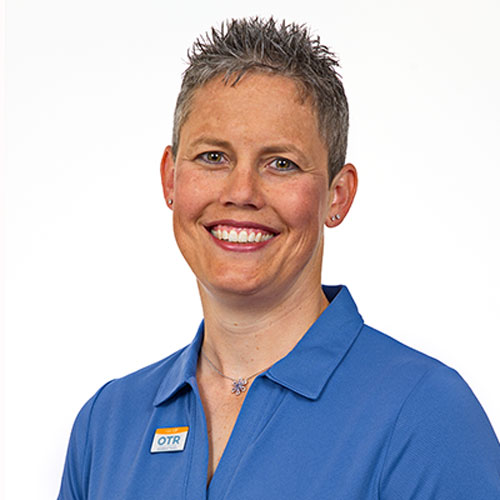What Do Certified Occupational Therapy Professionals Do?
Occupational therapists work with people of all ages and at all stages of life. They may provide interventions to children who have autism, a developmental disability, or motor skill difficulties; adults who are recovering from a stroke or a brain injury; or senior citizens who are overcoming a health setback or learning to cope with the aging process.
Occupational therapy professionals help people to regain function or adapt to health changes by assessing and addressing all aspects of recovery.
What Does It Mean to Be a Nationally Certified OT?


Occupational therapy professionals who choose to maintain their certification with the National Board for Certification in Occupational Therapy (NBCOT®) will have one of the following federally registered, national credentials:
- OTR® – Occupational Therapist Registered
- COTA® – Certified Occupational Therapy Assistant
OTR and COTA professionals have completed occupational therapy education and have passed a national certification exam. They have agreed to follow the NBCOT Practice Standards and the NBCOT Code of Conduct, and to fulfill continual professional development requirements. Only those who maintain an Active in Good Standing status with NBCOT can use the OTR or COTA credential.
The OTR and COTA certifications signify that the professional who may be treating you or a loved one has demonstrated commitment to ongoing professional development.
OTRs and COTAs are also state licensed professionals.
Look for the OTR or COTA certification when seeking an occupational therapist or occupational therapy assistant for yourself or a loved one.
For additional information about the profession, visit the American Occupational Therapy Association (AOTA®). For more information on the education required to be eligible to earn occupational therapy certification, please visit the Accreditation Council for Occupational Therapy Education (ACOTE®). To learn more about research in occupational therapy, visit the American Occupational Therapy Foundation (AOTF).

Sanna, OTR
Montana
“I work with children and I feel that my OTR credential offers trust to the parents. It underscores for parents that I’ve put the extra time and effort into staying on top of effective treatment strategies.”

Chris, OTR
New York
“No matter where a person is in his or her life span, occupational therapy can help them do the things that are meaningful to live.”

Teresa, OTR
Maryland
“The certification is a sign to the public that I’m doing everything I can to be the best OT I can be. It gives patients extra assurance about the care they’re receiving.”
Questions to Ask Your Occupational Therapy Professional
Did you recently learn that you, or a loved one, need occupational therapy? Making any decision that affects your health and well-being, or that of a loved one, can seem daunting. When it comes to making choices for occupational therapy, here are some questions that you may ask to decide if a person or facility is right for you.

Amanda, OTR
Minnesota
“Maintaining my OTR certification holds me to a higher standard. It demonstrates to my employer and my patients that I have kept up with advances in treatment strategies and have continued to grow as a practitioner.”

Christie, COTA
Pennsylvania
“Every profession experiences continual change. There are always new techniques and interventions to learn. I need to stay at the top of my game to ensure I am always providing my patients with quality care and maintaining my COTA certification helps me do that.”

Jason, OTR
Virginia
“Maintaining my OTR credential shows that I’m staying current and that I’m a level up in my profession.”